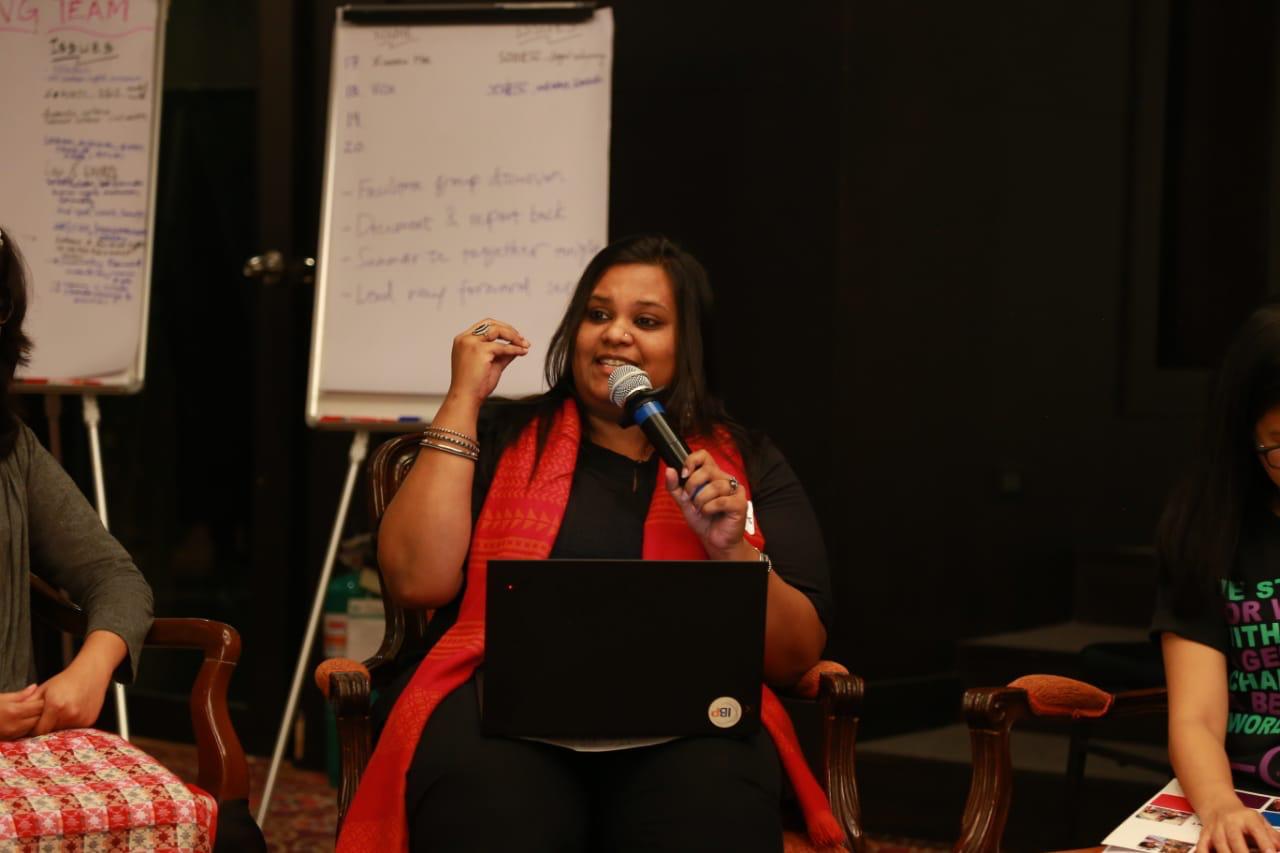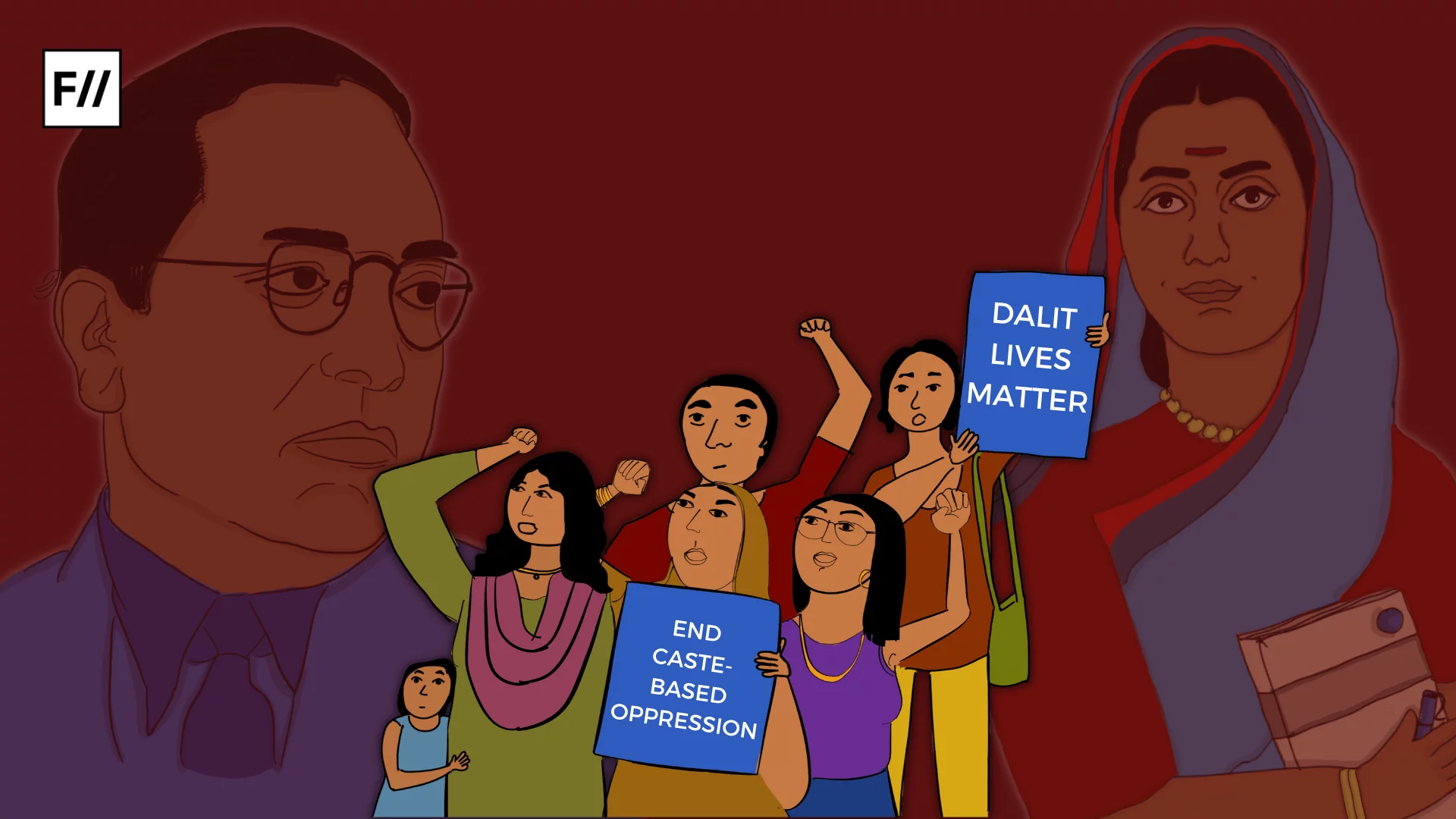“If we aren’t intersectional, some of us, the most vulnerable, are going to fall through the cracks” -Kimberle Crenshaw
The Young Feminists Forum held on 22-23 November 2019 in Bangkok epitomised sisterhood and solidarity in all its diversity. It was a gathering of progressive young feminists (women, people belonging to SOGIESC spectrum, women with disabilities, women from marginalised communities, among others) from across the Asia Pacific region. These young activists in the Young Feminists Forum are challenging patriarchy in its various manifestations, breaking the cycle of systemic oppression and weaving communities together towards building gender-just societies.
The global gender equality movement is at a critical moment in history with 2020 marking the 25th anniversary of the Fourth World Conference on Women and the adoption of the Beijing Platform for Action (BPfA),1995. Therefore, feminists across the globe are convening spaces to reflect on their lived realities, consolidate emerging priorities and set the agenda for future action and advocacy.
At the heart of the Young Feminists Forum was the unpacking of how gender identities and abilities interact with social constructs such as patriarchy, caste, religion, race, ethnicity, socio-economic status, conflict settings, citizenship/migrant status, etc. to shape experiences and outcomes.
The Young Feminists Forum was one such convening in the Asia Pacific region. At the heart of this conversation was the unpacking of how gender identities and abilities interact with social constructs such as patriarchy, caste, religion, race, ethnicity, socio-economic status, conflict settings, citizenship/migrant status, etc. to shape experiences and outcomes.
As feminists, our lived realities are witness to the fact that marginalisation does not occur in isolation, there are several intersecting factors that contribute to gender-based violence and discrimination. A case in point is the status of Dalit women across South Asia, particularly India, which alone is home to 100 million Dalit women out of the 260 million Dalits worldwide.
In India, the construct of caste is deeply entrenched in the socio-cultural, economic and political fabric of the country. Owing to their status of being at the bottom of the caste, class and gender hierarchies, atrocities and brutal forms of violence are perpetrated on Dalit women. The concept of ‘purity’ and ‘untouchability’ sanctions the normalisation of violence against them by ‘dominant’ castes. Till date, Dalit girls and women are bonded into sex work in temples as ‘devadasis’ and ‘joginis’ (slaves of God). More than 90 percent of manual scavengers are Dalit women (more than 1.3 million) who clean dry latrines, collect and dispose human wastes, manually. Dalit women and girls are bonded labour in agricultural lands and brick kilns, which is nothing short of modern-day slavery. Caste, class and patriarchy have worked together to exploit, stigmatise and ostracise Dalit women across the continuum of work.

Sexual violence has been used as a tool against the Dalit community to ‘dehumanise’ them and maintain caste-based power equations. In India, according to NCRB data 6 Dalit women are raped every day; this is a conservative estimate as most cases do not get reported. The marginalisation is compounded, and violence intensified when it is Dalit women living with disabilities, HIV/health status, migrant/citizenship status and across the SOGIESC spectrum, among others. The power structures are constantly intersecting in visible and invisible ways at every stage restricting their ‘agency’ and social mobility.
In India, according to NCRB data 6 Dalit women are raped every day; this is a conservative estimate as most cases do not get reported. The marginalisation is compounded, and violence intensified when it is Dalit women living with disabilities, HIV/health status, migrant/citizenship status and across the SOGIESC spectrum, among others.
Therefore, the Fourth World Conference on Women, Beijing, 1995 is of particular significance to Dalit feminists as it presented them a platform to assert their collective rights, validate their struggles and amplify their voices for the first time in history. Parallels were drawn between the struggles of the ‘Black’ feminists and ‘Dalit’ feminists as they were both fighting to claim spaces in the ‘mainstream’ feminist movement and the ‘mainstream’ Black and Dalit movements respectively.
It was the same year that the National Federation of Dalit Women (NFDW) was formed. “An independent and autonomous assertion of Dalit women’s identity found its first expression in the formation of National Federation of Dalit Women on August 11, 1995” stated the social scientist, Gopal Guru. Since then, Dalit feminists across South Asia and beyond have been effectively organising in large numbers and working towards building a social justice movement that frame the specific structural oppression and systemic violence faced by them differently from that of non-Dalit women.
Also read: Did The Cheque Bounce For Dalit Women In The Interim Union Budget 2019?
The Beijing Platform for Action (BPfA), 1995 was path breaking as it laid the blueprint for gender mainstreaming in public policies and governance, recognising the distinct disadvantages faced by marginalised women. The Dalit Feminist movement has since drawn their strength from BPfA, along with Convention on the Elimination of all forms of Discrimination Against Women (CEDAW), Convention on the Elimination of Racial Discrimination (CERD) and other critical international human rights treaties and conventions.
Despite the BPfA having envisioned gender equality in all dimensions of life and with 25 years of struggle and resistance, nothing substantive has changed in the lived realities of Dalit women particularly at the grassroots. They continue to face multiple and intersecting forms of marginalisation resulting in acute socio-economic and political inequalities.

In the light of this, we, the young Dalit feminists continue to seek increased access to opportunities for our socio-economic and political upward mobility and empowerment. We strongly condemn the increasing impunity enjoyed by state and non-state perpetrators in cases of sexual assault and caste-based atrocities. Our rights are undermined due to the lack of a comprehensive legal support and protection provided to survivors. Impunity socially legitimises violence and discrimination against us.
We call upon the Government of India to advance accountability mechanisms to protect Dalit women’s human rights, adopting multi-pronged strategies to advance our rights to live to our full human potential. We, at the Young Feminists Forum, demand that the government prioritise gender responsive planning and implementation through the lens of intersectionality and pave the path to achieving substantive equality and redistributive justice for Dalit women in all our diversity and varied abilities.

In our pursuit to ‘leave no one behind’, we call upon the Government of India to reassess and recalibrate its strategies towards the implementation of the BPfA. We also call upon the international community, including the Beijing+25 reviews across the globe to recognise and highlight ‘Discrimination based on Work and Descent’ (DWD) and its acute implications on women in all its outcome documents.
Also read: Dalit Women Learn Differently: Experiences In Educational Institutions
We young Dalit feminists have full faith in the BPfA and look forward to engaging with the Beijing+25 as we trust that it would open new opportunities to intervene and influence critical global processes which will drive the efforts towards building an inclusive and intersectional feminist future. We, the young Dalit feminists will continue to fight the good fight by persisting through the challenges, strengthening our resistance and transforming all our pain into power.
Priyanka Samy is an intersectional feminist who is a member of the National Federation of Dalit Women (NFDW). She can be reached on Twitter.
All photos are provided by the author.
About the author(s)
Priyanka Samy is an intersectional feminist activist from India whose work bridges grassroots organising and global advocacy. She is a member of the National Federation of Dalit Women (NFDW).





